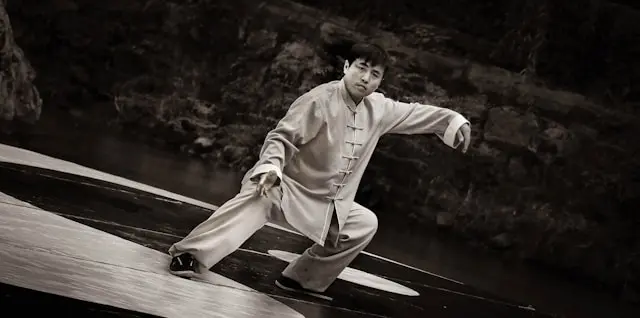Key Takeaways
- Tai Chi’s can be a gentle yet effective exercise for postmenopausal women looking to improve overall well-being.
- The practice offers a host of physical and mental health benefits.
- Incorporating Tai Chi into your routine can help manage stress and balance.
- Consistency and guidance from instructors enhance the practice’s benefits.
Tai Chi and Its Gentle Approach to Exercise
As women enter the postmenopausal phase, they often experience a myriad of physical changes. Engaging in exercises that cater to these changes without exacerbating discomfort is crucial. Unlike high-intensity regimens that can strain the body, Tai Chi offers a low-impact, graceful alternative. Each fluid movement in Tai Chi emphasizes balance and flexibility, helping to strengthen muscles gently and improve overall stability.
Tai Chi’s adaptability allows individuals to practice at their own pace, making it an ideal exercise for varying fitness levels. Its emphasis on slow, deliberate movements ensures that participants can focus on form and control, reducing the likelihood of injury and creating an inclusive environment.
Understanding the Mental Health Benefits
The benefits of Tai Chi extend beyond physical improvements; it significantly enhances mental well-being. As a meditative practice, Tai Chi encourages mindfulness, helping practitioners achieve a state of mental tranquility. This calming effect is crucial for postmenopausal women, who may experience increased stress or anxiety during this transitional life stage. Engaging in Tai Chi regularly can act as a form of active meditation. Participants learn to focus their minds and regulate their breathing, which can reduce anxiety levels and give them a greater sense of peace. That’s where the holistic approach to postmenopausal health becomes beneficial.
The rhythmic, repetitive movements of Tai Chi foster physical awareness and mental clarity. By synchronizing breath with movement, Tai Chi fosters inner tranquility, a mental condition that may enhance emotional control and general resilience.
Enhancing Balance and Stability
Maintaining balance and coordination becomes increasingly essential as individuals age. Tai Chi is renowned for its ability to enhance these attributes. According to the National Institute on Aging, practices that focus on balance are essential in reducing the risk of falls—a common concern in postmenopausal women. The controlled movements of Tai Chi improve proprioception, helping individuals become more aware of their bodies’ spatial orientation.
By periodically shifting weight and holding different stances, Tai Chi strengthens the lower body and improves core strength. These physical adaptations contribute to better posture and alignment, reducing the likelihood of balance-related mishaps.
Consistency: The Key to Success
Like any other exercise, consistent practice is crucial to maximizing the benefits of Tai Chi. Regular sessions, ideally two to three times a week, help reinforce the mind-body connection that Tai Chi nurtures. Consistency allows for gradual physical improvements and enhances the depth of mental benefits, further embedding the practice into one’s lifestyle.
Over time, repeated practice helps develop muscle memory, making movements more intuitive and automated. This dedication fosters long-lasting improvements in physical and mental health, ensuring practitioners can fully reap the rewards of Tai Chi.
Seeking Guidance from Instructors
Though Tai Chi can be accessible online, learning from a trained instructor can significantly enrich the practice. Instructors provide personalized feedback, ensure proper technique, and create a supportive environment to enhance learning and growth.
Guidance from a knowledgeable instructor is invaluable in mastering Tai Chi’s subtleties and maximizing its health benefits. Personalized attention ensures movements are executed safely and correctly, minimizing injury risks and allowing for tailored improvements.
Adapting Tai Chi to Your Lifestyle
Tai Chi’s timeless appeal lies in its flexible application. Whether practiced in a community setting, a tranquil park, or at home, it can fit seamlessly into diverse routines. This adaptability allows individuals to create a practice that meets their unique needs and schedules.
The accessibility of Tai Chi means it can be woven into daily routines effortlessly, ensuring its sustainability and enhancing the likelihood of continued practice over time. By integrating Tai Chi into their lives, practitioners cultivate a habit that supports lifelong health and well-being.
Real-Life Impact: Stories of Transformation
The impact of Tai Chi on individuals is profound and documented in stories worldwide. Many have experienced significant transformations, finding the practice a source of invigoration and peace. Stories of increased energy, improved mood, enhanced balance, and coordination testify to Tai Chi’s efficacy.
Tai Chi transforms the postmenopausal journey into vitality and well-being through dedication and regular practice. The calming influence, physical benefits, and mental clarity cultivated by Tai Chi can reinvigorate women’s approach to this stage of life, promoting a holistic sense of health and happiness.



